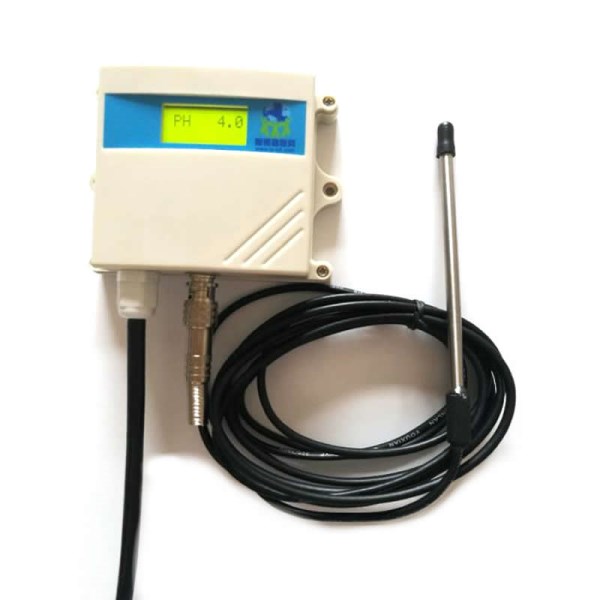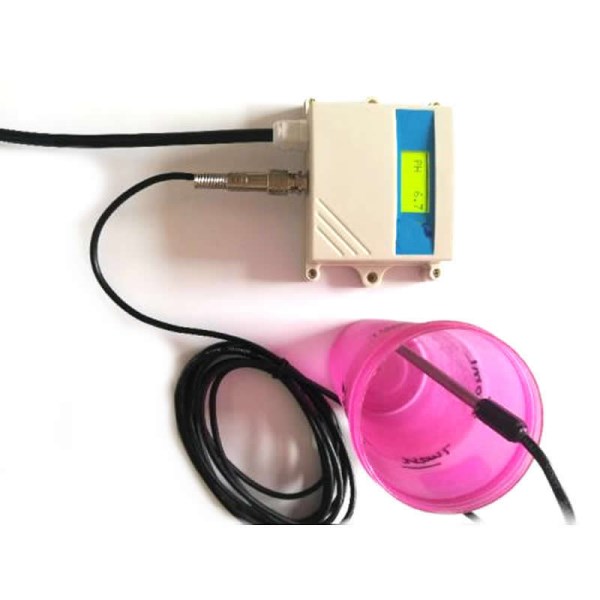Type:Logic ICs
Condition:New
Model:PH1XX
soilPH(PH) sensor
Handbook
V0.0


Product introduction
soil PHThe value sensor solves the traditional soil well. PHIt needs to be equipped with professional display instruments, calibration is cumbersome, and integration is very difficult. Large power consumption, The price is high. Difficulties such as carrying difficulties.
Soil of this paragraphPHValue sensor, truly realize soil PHOn-line
Real time monitoring;
_Adopt the most advanced solid dielectrics in the world and large-area PTFE liquid interface, which is not easy to block and maintenance-free.
It has high integration, small volume, low power consumption and convenient portability.
To achieve low cost, low price and high performance.
It has high integration, long life, convenience and high reliability.
Support two development.
The electrode adopts high quality and low noise cable to make the output of signal reach as long as possible.TenNo interference above meter.
This product can be widely used in agricultural irrigation, flower horticulture, grassland and pasture, soil rapid measurement, plant culture, scientific experiments and other fields.
technical parameter
Measuring range: 4-9PH
accurate True Degree: + 0.3pH
branch Distinguish Rate: 0.1pH
Reaction time: <Tensecond(In the water)
Power supply mode:
*DC 5V
*DC 12V
*DC 24V
The other
Output form:
Voltage:0~2.5V,0~5V
Current:4~20mA
*RS232
*RS485
The other
Instrument length:
Standard:Threerice
The other
Working environment: temperature 5~60Centigrade
humidity 0~95%RH
Power waste: 0.1W
Case material: waterproof plastic case.
Instructions
1, When the sensor leaves the factory, the probe position has a soft rubber cap, and the built-in protective solution protects the electrode. When using, please remove the protective cover first, and then insert the metal rod into the solution or soil to be measured (soil moisture is in theThe measurement between 30~5Zerois more accurate.
2. Under normal circumstances, In the air PHValue is4;
3, After burying the sensor, pour a certain amount of water around the soil to be measured (as far as possible). PH by SevenNeutral water, wait a few minutes, until the water immerses into the probe, you can read data on the instrument, under normal conditions, soil neutral, PHValue in SevenAround, different places of soil, practical PHThe value will be different, and it should be determined according to the actual situation.
Matters needing attention
1, To ensure that electrodes are correctly measured PHValues should be avoided to cause data inaccuracy in the measurement area.
2, Please check whether the package is intact and check whether the product type is consistent with the selection.
3, Do not connect live lines. After the connection is completed, check is correct.
4When using, do not change the components or wires that the products have been welded at the factory.
5Sensors belong to precision devices. Users should not disassemble them by themselves or contact the sensor surface with sharp objects or corrosive liquids in order to avoid damaging the product.
Troubleshooting
1When the analog output is displayed, the display value is 0 Or not within the range. Due to wiring problems, the acquisition device can not get information correctly. Please check whether the wiring is correct and firm, and whether the supply voltage is normal.
2If it is not for the above reasons, please contact the manufacturer.
Maintenance
1The input end of the instrument (measuring electrode socket) must be kept dry and clean to prevent dust and water vapor from immersing.
2Long-term immersion of electrodes in protein and acidic fluoride solutions should be avoided, and contact with organic silicone oil should be avoided.
3After using for a period of time, if for some reason it is not used for a long time, take the attached protective solution and pour it into the protective cover, wash the electrode with distilled water, and immerse it in the protective solution to protect the electrode.
4Transmitter should be placed in dry environment or control box to avoid leakage or measurement error caused by water droplet sputtering or dampness.

